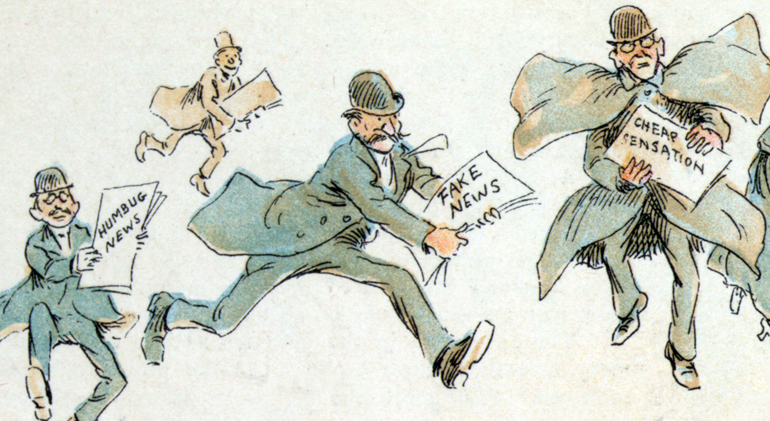

Undoubtedly, one such issue is the right of legal entities to compensation of non-material damage on the ground of commercial defamation.
Namely, Article 50a(1) of the Trade Act provides that a trader damaged by an act of unfair competition shall be entitled to seek compensation for both material and non-material damage due to a breach of its business reputation. The Trade Act further stipulates that a court will award a fair monetary compensation of non-material damage, where it finds the circumstances of the case so justify (weighing in particular: the significance, duration and intensity of violation, the violation’s effect on the plaintiff’s business, the significance of the damaged good, and the purpose of compensation).
In this respect, we note that (commercial) defamation is merely a wrongful act, whereby the Trade Act fails to specify what this wrongful act consists of, i.e. what is the actual damage, how do the wrongful act’s consequences manifest themselves, i.e. what kind of damage does commercial defamation cause, and how is it compensated i.e. what are the assessment criteria. Therefore, there is a need to apply the relevant damages provisions of the Contracts and Torts Act.
The Contracts and Torts Act further defines non-material damage as causing another physical pain or mental anguish, or fear, and provides that the court will (if so justified by the circumstances of the particular case) award fair compensation for:
It is unequivocally clear from the foregoing that, under general rules on non-material damage, the damage concerned is caused by violating an intangible asset, i.e. it does not occur objectively, rather subjectively, i.e. to an injured party’s personality, and manifests itself as a disorder of its mental and emotional balance. Therefore, non-material damage does not happen, rather it is experienced as discomfort, consisting of negative affectivity in the form of physical pain, fear or mental anguish.
In that respect, and in all logic, only an individual can suffer non-material damage, as only individuals can suffer physical pain and mental anguish, or fear, having in mind that a legal entity cannot suffer non-material damage in the manner prescribed by the Contracts and Torts Act, i.e. as physical pain and mental anguish, or fear.
However, since the Trade Act defines a trader as a legal entity or individual who meets the conditions for carrying on the sale of goods or services, there arises a question – does the right to compensation of non-material damage for commercial defamation under Article 50a(1) of the Trade Act refer only to traders who are individuals? If it also covers traders incorporated as legal entities, how does the manner in which non-material damage occurs to them manifest, given that a legal entity cannot suffer discomfort in the form of mental anguish, or other negative affectivity related solely to a human’s personality and its experience?
Besides, it is unclear how damage caused in this way can be eliminated when it concerns a legal entity. Namely, having in mind that monetary compensation of non-material damage is no counterbalance for violated personal goods, neither may it constitute a sanction for an unlawful act, rather it must have the character of satisfaction, i.e. subjective contentment that can restore an injured party’s balance of mind, disturbed by the harmful event, it is debatable if it can achieve its purpose where a legal entity is involved. In addition (if Article 50a(1) of the Trade Act refers to legal entities, and so implies monetary compensation of non-material damage), then there is also a legal vacuum concerning the manner in which the compensation is determined, especially having in mind that non-material damage is an abstract category, that cannot be accurately determined.
It is worth mentioning that Article 41 of the European Convention on Human Rights stipulates so-called right to just satisfaction, which includes the right to compensation of both material and non-material damage, resulting from defamation of honor and reputation of a legal entity (due to violation of rights set forth in this Convention).
From the standpoint of comparative law, many legal systems recognize such provision in their legislation. For example, the Supreme Federal Court of Switzerland explicitly took the view that legal persons enjoy the right to compensation of moral damage, i.e. it ruled that legal entities also have the right to protection of their “personality”, whereby the decision on the manner in which such damage will be compensated is left to the court in each particular case (e.g. by publication of the judgment or by monetary compensation). In some countries, such as Russia, there is a distinction between moral damage, inherent only to individuals, and reputational damage, that can be suffered by legal entities as well.
In this regard, in Comingersoll S. A. v. Portugal (35382/97) the European Court of Human Rights (ECHR) ruled that, when determining the non-material damage suffered by a legal entity, the inconveniences that harmful event caused to its management must be taken into account as well. Similar to the aforementioned, in Freedom and Democracy Party (ÖZDEP) v. Turkey (23885/94) the ECHR awarded compensation to the political party for the frustration suffered by its founders and members.
All of the above considered, it can be said that legislation in Serbia governing this area is incomplete. In practice, this issue is one that crops up constantly before the courts, resulting in an absence of legal uniformity and uncertainty. Therefore, it would be desirable if amendments to the relevant provisions of the Trade Act were considered, or at least if the highest judicial instances took a viewpoint in this respect, which would lead to precise definitions of both the meaning and scope of traders’ rights to compensation of non-material damage, i.e. laying down clear and precise rules regarding how this damage manifests itself where legal entities are concerned, as well as how it should be compensated, including parameters for determining the amount of potential monetary compensation in each particular case.